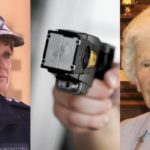What is the Law on Child Sex Tourism?

In general, a government makes laws about conduct within its own territory but on some occasions, these laws can extend beyond borders.
While the laws of the states and territories govern sexual offences committed within Australia, child sex tourism is a Commonwealth offence and is dealt with in section 272.8 of the Criminal Code Act.
Child sex tourism is an offence committed by travelers who leave their own country and engage in the sexual exploitation of children.
Who can be prosecuted?
In Australia it can be prosecuted if the offender is, at the time of the offence:
- An Australian citizen;
- A resident of Australia; or
- A body corporate incorporated under Australian laws or one that carries on its activities in Australia
What are the penalties?
The penalties differ depending on the offence committed, with the most serious offences coming with a maximum 25 years imprisonment.
Sexual intercourse: The penalties for engaging in sexual intercourse with a child under 16 years outside Australia is 20 years in prison. It is also an offence to cause the child to have sex with someone else in the presence of the defendant. This crime is also punishable by 20 years in jail.
Sexual activity not including intercourse: Engaging in any sexual activity with a child under 16 other than sexual intercourse carries a jail term of 15 years.
These offences are ones of ‘absolute liability.’ This means that there are no fault elements that must be proved – it is enough that the act was committed, and there is no defence of mistake.
For example, if the person engaging in sexual intercourse with a 14 year old overseas believed the person to be 16, they are still guilty of an offence.
Engaging in sexual activity in front of a child: It is also an offence to have sex in front of a child if the intention is for the offender to derive gratification from the child’s presence. In court, it is up to the defence must prove that they did not intend to derive gratification from the child’s presence.
Aggravated offences
Committing any of the above offences with children under aggravated circumstances comes with a maximum penalty of 25 years imprisonment. The three categories of aggravated offences are:
- When the child has a mental impairment
- When the child is under the offenders care, supervision or authority
- When the offender holds a position of trust and authority over the child
People in positions of trust or authority include parents, grandparents, social workers, a teacher of the abused person, their sports coach, employer, nurse or medical practitioner, religious leader or members of the police force.
Persistent sexual abuse: Persons who commit three instances of any of the above crimes on separate occasions can be charged with persistent sexual abuse. The penalty for persistent sexual abuse is 25 years imprisonment.
When prosecuting persistent sexual abuse, it is not even necessary for the prosecution to prove particular dates or exact circumstances of the offence. As long as the period of time in which the offence was committed can be identified with “reasonable particularity” and the nature of the crime can be described, the charge can be proved.
The judge or jury does not have to be satisfied that the events took place on particular days or in a particular order, as long as they are satisfied that three such instances took place.
Grooming: Australian laws are tough on those who have planned to engage in child sexual abuse overseas but have not yet committed the crime.
Police have the power to intervene before the alleged offender has even left Australia. “Grooming” a child to later engage in sexual activity outside Australia is punishable by prison for 12 years.
The offence is committed if the defendant groomed a person under 16 years, or believed the person they were attempting to groom was under 16 years. The person they may have been grooming does not even have to be a real person.
This is important because it means that the offence is still committed if a detective or police officer poses as a child to catch sex offenders.
Mistaken belief about the age of the child is a defence – if the offender believed the person to be at least 16 at the time, they will not have committed an offence. However it is up to the defence to prove that this was their belief at the time and the judge or jury can take into account whether this mistake was reasonable or not.
Offences involving a young person: Having sexual intercourse with a young person (aged between 16 and 18) overseas with a person over whom the offender has a position of trust or authority is also punishable by 10 years in jail.
There is no distinction in offence between sexually abusing a very young child and a teenager, although this may be reflected in sentencing.
Over 30 people have been charged with a child sex tourism offence since the introduction of legislation in 1994, which is fairly high by international standards, although amounts to less than two a year. About 70% of the cases prosecuted resulted in conviction.
Child sex tourism legislation is very broad. This is because sex offences, especially ones committed overseas or a long time ago are often very hard to prove.
The legislation places an extraordinary burden on the defendant – sometimes removing the defence of mistake, and even shifting the burden of proof from the prosecution to the defendant.
For persistent sexual abuse, dates times circumstances and the order of the assaults do not have to be proved beyond “reasonable particularity.”
While such changes may be necessary to catch those who engage in child sexual abuse overseas, there is also the concern that they are construed without the other safeguards generally afforded those who are accused of committing a crime and may pose the risk of wrongful convictions.






